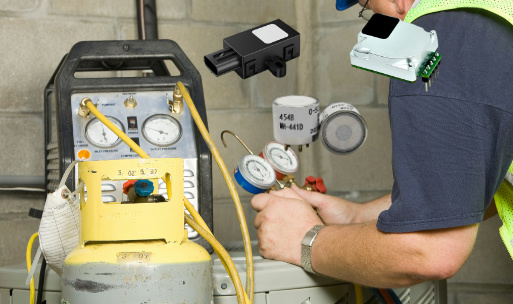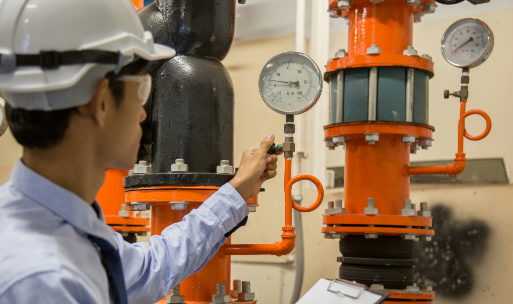Exploring Heat Pump Applications: Harnessing Energy Efficiency for Year-Round Comfort
Heat pumps are versatile and efficient heating and cooling systems that have gained popularity in recent years. They use the principles of thermodynamics to transfer heat from one location to another, providing both heating and cooling capabilities. In this article, we will delve into the various applications of heat pumps and discuss how they offer energy-efficient solutions for year-round comfort.
The applications of heat pumps can be classified under three categories.
- Residential Comfort
- Commercial Building
- Industrial Efficiency
Residential Comfort
Heat pumps offer a wide range of applications in residential settings, providing efficient and sustainable solutions for heating, cooling, and overall comfort.
Heating and Cooling
One of the primary residential applications of heat pumps is for heating and cooling homes. Heat pumps extract heat from the outdoor air, ground, or water sources and transfer it indoors during colder months, effectively warming the living space. In the summer, the heat pump reverses the process, removing heat from indoor air and transferring it outside to provide cooling. This dual functionality eliminates the need for separate heating and cooling systems, resulting in energy savings and reduced carbon emissions.
Water Heating
Heat pumps can also be used for residential water heating. By utilizing the ambient heat from the surrounding air or the ground, heat pumps can efficiently heat water for various household needs. Compared to traditional electric water heaters, heat pump water heaters can provide significant energy savings, making them a cost-effective and eco-friendly choice for homeowners.
Geothermal Systems
Geothermal heat pumps utilize the stable temperature of the ground or water sources to provide heating, cooling, and hot water for residential applications. These systems are buried underground or submerged in a water source, leveraging the relatively constant temperature below the surface. Geothermal heat pumps offer exceptional energy efficiency and can provide long-term savings for homeowners, especially in areas with ample access to geothermal resources.
Commercial Buildings
Heat pumps find extensive use in commercial buildings such as offices, shopping malls, and hotels. These systems can efficiently heat or cool large areas using less energy compared to traditional HVAC systems. Heat pumps can be integrated with other building management systems to optimize energy usage and provide zoned heating and cooling, allowing different areas of the building to be maintained at different temperatures based on occupancy and usage patterns.
Heat pumps offer an efficient solution for heating swimming pools, extending the swimming season and increasing overall comfort. By extracting heat from the surrounding air or the ground, heat pumps transfer it to the pool water, maintaining a desired temperature even during colder months. This eliminates the need for traditional electric or gas heaters, resulting in substantial energy savings.
Industrial Efficiency
Heat pumps have found valuable applications in various industrial sectors, offering energy-efficient solutions for heating, cooling, and process requirements.
Process Heating and Cooling
Industries such as food processing, chemical manufacturing, and pharmaceuticals often require precise temperature control for their processes. Heat pumps provide a reliable and efficient solution for process heating and cooling. By utilizing waste heat or renewable energy sources, heat pumps can significantly reduce energy consumption, resulting in cost savings and reduced environmental impact.
Industrial Air Conditioning
Heat pumps can be used for cooling large industrial spaces such as warehouses, factories, and data centers. By extracting heat from the indoor air and transferring it outside, heat pumps effectively cool the environment while minimizing energy consumption. This helps maintain optimal working conditions for employees and avoids potential equipment overheating.
Waste Heat Recovery
Heat pumps can be employed to recover waste heat from industrial processes and utilize it for heating purposes. By capturing and repurposing otherwise wasted heat, heat pumps contribute to energy conservation and can significantly reduce the reliance on traditional heating systems, resulting in cost savings for industrial operations.
Heat Pump Common Uses
Space Heating
Heat pumps are widely used for space heating in residential, commercial, and industrial buildings. They extract heat from the outside air, ground, or water sources and transfer it indoors. This method of heating is energy-efficient and can provide consistent warmth throughout the space. Heat pumps can be used for underfloor heating, radiators, or forced air systems, ensuring comfortable indoor temperatures during cold seasons.
Sanitary Water Heating
Heat pumps can also be used for heating domestic hot water. By utilizing the heat from the surrounding air or water sources, heat pumps can efficiently heat water for everyday use in homes, hotels, and other buildings. Compared to traditional electric or gas water heaters, heat pumps consume less energy, resulting in cost savings and reduced environmental impact.
Process Heating
Industrial processes often require heating for various applications, such as drying, curing, or melting. Heat pumps can provide the necessary heat for these processes. By utilizing waste heat or renewable energy sources, heat pumps offer energy-efficient solutions for process heating, reducing operating costs and carbon emissions.
Dehumidification
Heat pumps can also be used for dehumidification, particularly in humid climates or spaces where moisture control is crucial, such as basements, swimming pools, or commercial facilities. Heat pumps remove excess moisture from the air, creating a more comfortable and healthy indoor environment. This reduces the risk of mold growth, improves air quality, and prevents damage to furniture or equipment.
Heat Recovery
Heat pumps can recover waste heat from various sources and repurpose it for other applications. For example, in ventilation systems, heat pumps can extract heat from the outgoing air and use it to preheat the incoming fresh air, reducing the energy needed to heat or cool the air. Heat recovery systems can be implemented in residential, commercial, and industrial settings, improving energy efficiency and reducing utility costs.
Conclusion
Heat pumps have revolutionized the way we heat and cool our spaces, offering energy-efficient solutions for various applications. From residential heating and cooling to commercial buildings, industrial processes, swimming pool heating, and geothermal systems, heat pumps provide reliable and sustainable comfort throughout the year. By harnessing the principles of thermodynamics, heat pumps contribute to reducing carbon emissions and conserving energy resources. Embrace the benefits of heat pump technology and enjoy efficient and eco-friendly heating and cooling in your everyday life.





